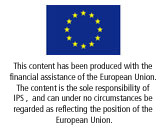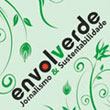By José Graziano da Silva*
RIO DE JANEIRO, Jun 18 (TerraViva) As stated in the 1972 United Nations Conference on the Human Environment and the 1992 Earth Summit, human beings are at the centre of sustainable development.
However, even today, over 900 million people still suffer from hunger. Poor populations worldwide, especially in rural areas, are among those most vulnerable to the food, climate, financial, economic, social and energy crises and threats the world faces today.
We cannot call development sustainable while this situation persists, while nearly one out of every seven men, women and children are left behind, victims of undernourishment. It would be a contradiction in terms.
Hunger and extreme poverty also exclude the possibility of sustainable development because the hungry and extremely poor need to make use of the resources they have at hand in whatever way they can to make ends meet. For people who are chronically hungry and malnourished, meeting their immediate needs is their paramount concern – planning for the future is often a luxury they cannot afford.
Paradoxically, over 70 percent of the world’s hungry people depend on agriculture, fisheries and forestry for at least part of their livelihoods, so their daily choices also help determine how the world’s natural resources are managed.
We cannot expect a poor farmer not to chop down a tree for fuel if he doesn’t have another source of energy; we cannot ask an artisanal fisherman not to fish during spawning time if that’s the only way to feed his family.
Hunger puts in motion a vicious cycle of reduced productivity, deepening poverty, slow economic development, resource degradation and violence. Hunger and natural resources are increasingly a factor of internal conflicts and conflicts between nations. Even when they are internal, their impacts frequently surpass the borders of countries. So, there is also a direct link between food security and security.
The quest for food security can be the common thread that links the different challenges we face and helps build a sustainable future. At the United Nations Conference on Sustainable Development (Rio+20) we have the golden opportunity to explore the convergence between the agendas of food security and sustainability to ensure that happens.
Both require changes towards more sustainable production and consumption models. To feed a growing population that is expected to top the nine billion mark in 2050, FAO projects the need to increase agricultural output by at least 60 percent in the next decades. To do so, we must save and grow – increasing agricultural production while preserving the environment.
But even then the pressure on our natural resources will be extreme. So we must also change the way we eat and find ways to feed the world without the need to produce as much.
We can do this by changing to healthier diets in the richer segments of our population and by diminishing the food loss and waste that exist in industrialised and developing countries, and that make us throw away 1.3 billion tonnes of food every year, between production and consumption.
However, even if we do increase agricultural output by 60 percent, the world would still have 300 million people hungry in 2050 because, like the hundreds of millions today, they would still lack the means to access the food they need. For them, food security is not an issue of insufficient production; it is an issue of inadequate access.
The only way to ensure their food security is by creating decent jobs, paying better wages, giving them more access to productive assets- specially land and water- and distributing income in a more equitable way.
We must bring them into society, complementing support to smallholders and income generation opportunities with the strengthening of safety nets, cash for work and cash transfer programmes that contribute to strengthening of local production and consumption circuits, in an effort that must contribute to our sustainable development goals.
The transition to a sustainable future also requires fundamental changes in the governance of food and agriculture and an equitable sharing of the transition costs and benefits. In the past, the poorer have paid a greater share of transition costs and received a smaller share of benefits.
This is an unacceptable balance and one that needs to change. The speed of change should also be our concern, so that the vulnerable population can adapt and be part of the changes instead of widening the gaps that exist today.
Eradicating hunger and improving human nutrition, creating sustainable food consumption and production systems, and building more inclusive and effective governance of agricultural and food systems are at the heart of achieving a sustainable world.
As world leaders meet for Rio+20, we are at a crossroads. In one direction is the path to further environmental degradation and human suffering; in the other direction lies the future we all want. The Rio summit offers a historic opportunity we cannot afford to miss.
We know how to end hunger and manage the earth’s resources in a more sustainable way. But we need a stronger political will to do it.
We should look to Rio+20 as the beginning of a new process and not the finish line. And it’s a path that we cannot travel alone.
Sustainable development, as is the case of ending hunger, is a goal to which every one of us must contribute – citizens, companies, governments, social movements, civil society, non-governmental organisations and regional and international bodies and institutions.
Together, working from the local to the global level, we can build the future we want. And this future needs to start today.
*José Graziano da Silva is Director-General of the Food and Agriculture Organization of United Nations (FAO).



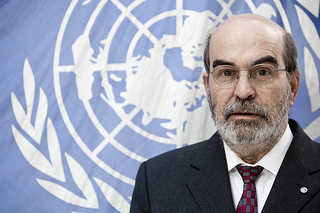
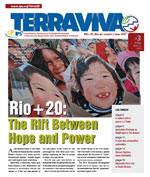
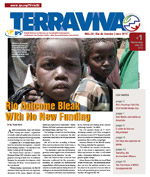
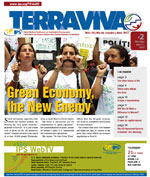

 Add to Google
Add to Google




